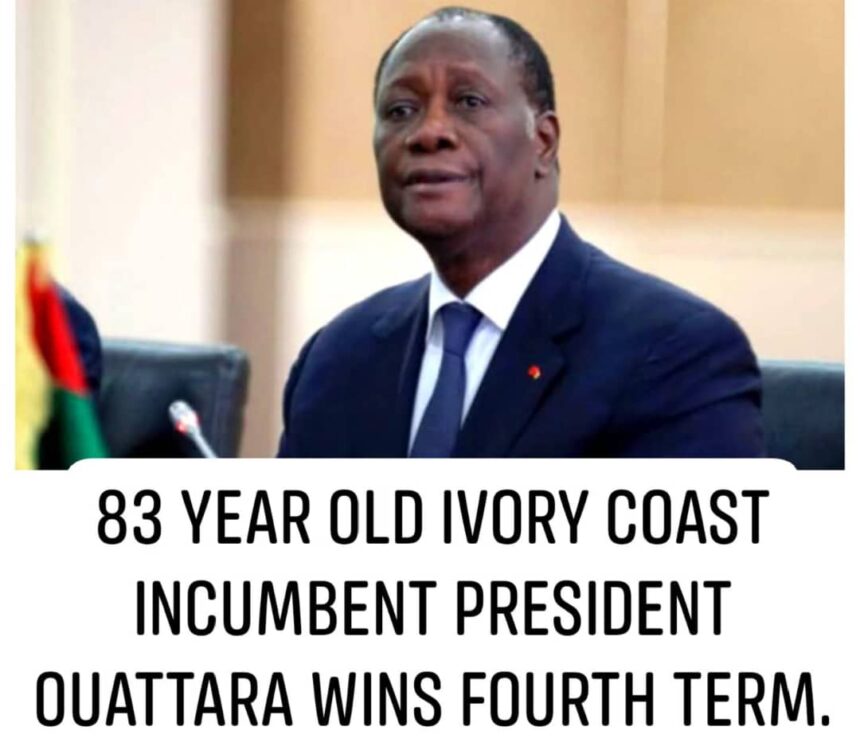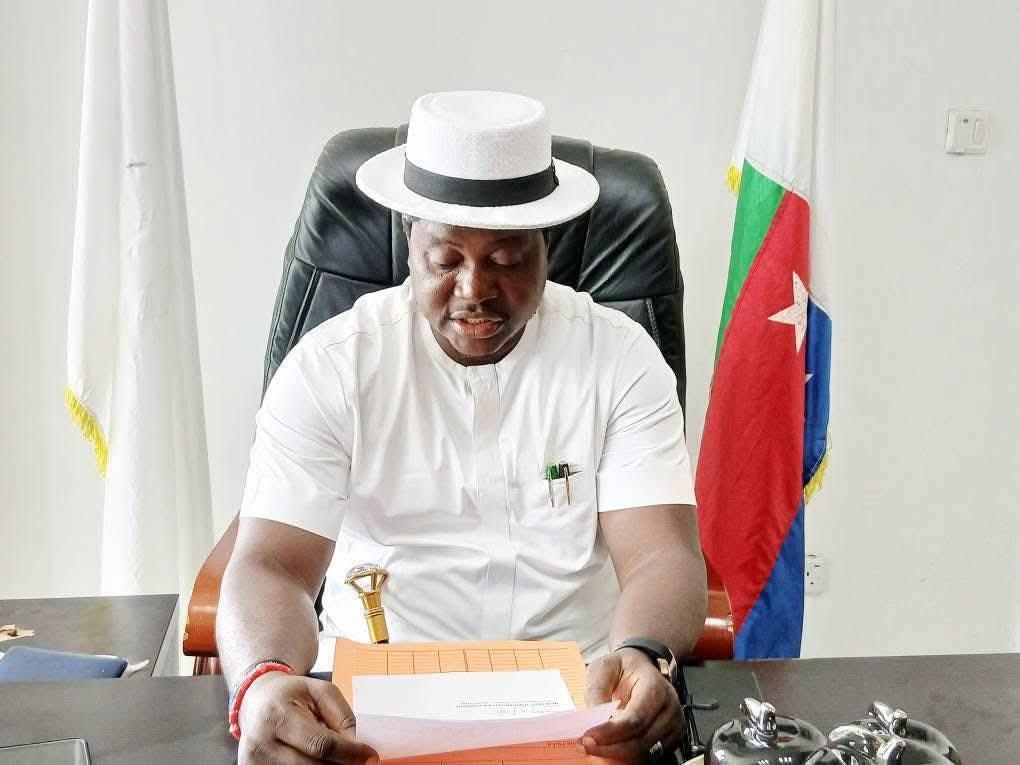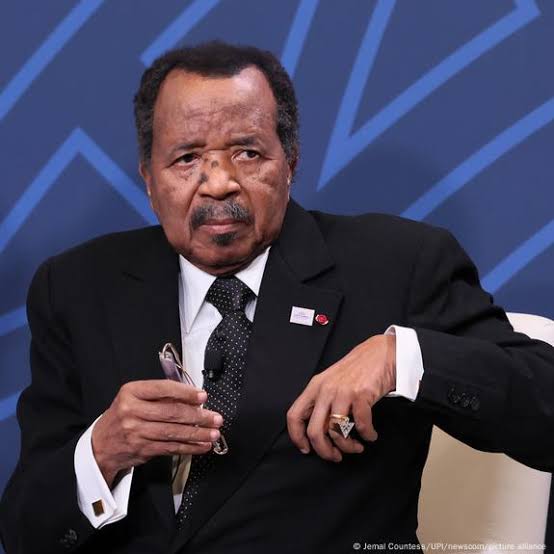Ivory Coast’s incumbent President, Alassane Ouattara, has secured a fourth term in office after winning 89.77 percent of the votes in the country’s latest presidential election, according to official results released by the Independent Electoral Commission on Monday.
The landslide victory further extends Ouattara’s long tenure in power, cementing his position as one of West Africa’s most enduring leaders. The 83-year-old president, who has been in office since 2011, faced limited competition in the poll after his two main political rivals were barred from contesting.
According to election authorities, voter turnout was moderate, and the voting process was largely peaceful, though opposition figures and civil society groups had previously raised concerns about the fairness of the electoral environment. The exclusion of key opponents was seen by critics as a major factor in the lopsided outcome.
Ouattara’s victory comes at a time when Ivory Coast, one of Africa’s leading cocoa producers, continues to navigate economic recovery efforts and political tensions that have simmered since the country’s 2010–2011 post-election crisis.
Supporters of the president celebrated the announcement, praising what they described as continuity and stability under his leadership. The ruling party, the Rally of Houphouëtists for Democracy and Peace (RHDP), welcomed the result as a reflection of the people’s confidence in Ouattara’s governance and his economic reforms, which have driven growth in infrastructure, agriculture, and energy sectors over the past decade.
However, opposition groups have criticized the election, arguing that the exclusion of prominent challengers undermined the legitimacy of the process. They alleged that the government used judicial and administrative means to prevent key figures from participating, effectively paving the way for Ouattara’s reelection.
Political observers note that the 2025 vote had been closely watched both domestically and internationally, as it was expected to be a test of Ivory Coast’s democratic resilience. Many had anticipated a transition of power after Ouattara initially stated in 2020 that he would not seek another term, only to later reverse his decision, citing the need to maintain stability following the death of his chosen successor.
Ouattara’s latest victory places him among the continent’s longest-serving leaders, raising renewed debate about term limits and political succession in West Africa. Similar controversies have emerged in neighboring countries where leaders have pursued extended stays in power through constitutional amendments or judicial rulings.
Despite these criticisms, Ouattara’s administration has pledged to focus on national reconciliation, economic stability, and youth employment in the coming years. The president is expected to take the oath of office in the coming weeks, as attention turns to how his government will address calls for political reform and inclusivity.
International reactions to the election have been mixed. Some regional observers have congratulated Ouattara on his victory, while others have urged his government to foster dialogue with opposition groups and ensure a more open political landscape moving forward.
With his fourth term now secured, Ouattara faces the challenge of maintaining Ivory Coast’s economic momentum while managing political divisions and preparing the groundwork for an eventual democratic transition in the years ahead.





